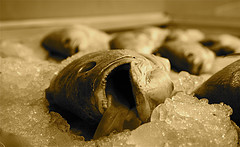Apr 8, 2014 Comments Off on Life Lessons
Life Lessons
So, this morning, I was writing in my diary on the subway and I thought, “If I were to die, and someone found this book, what would I want them to know?”
- There are always more options than you realize or are actively considering.
- Giving is good.
- The system obeys its own logic. It is not a human logic.
- Our conscious perception of reality is a product of our nervous system. Ensuring that this product reflects the inputs as accurately as possible poses its own unique challenge. The other challenge is not always falling for this product and forgetting that we have conjured it forth.
- There’s nothing wrong with lying, per se. There are no rules, strictly speaking, but telling the truth, as difficult as that can be (given, in part, the difficulty of knowing the truth with certainty), is often easier to live with. It can also, at times, be downright heroic.
- You will be wrong about this and that. Admit it.
- Everybody is on some trip, though not everyone consciously so. This trip is an archetypical paradigm, a “way of living” that may have been sketched out explicitly for us (in church or school or work), or inferentially in song and story. It could be a power trip, an ego trip, a rebel trip, a mother trip, a father trip, a blues trip, a business trip, a science trip, a slacker trip, whatever. Recognizing you own trip qua trip can be helpful as can recognizing the trips of others. However, our overblown sense of individuality and personal novelty makes it difficult to accept that we are on a trip (we can, in defensiveness, immerse ourselves, lose ourselves, in it), so pointing it out won’t exactly win you any brownie points.
- Compassion towards others should be your default setting. Realize that they are on their trip or running their script, their programming, or simply living out their limitations, acting out, acting against something invisible, unconscious. And that they are doing so deliberately, as it may happen, as you yourself may be doing.
- Trips run the game.
- When somebody is coming at you, being rude and aggressive, it can be hard to remember that this is a trip they are on (it can be almost as difficult as realizing this is a trip you are on). You are going to feel like you need to defend yourself (in fact, you may actually need to), and you will want to respond with your own form of rude aggression. Choose another option.
- Feelings change. Life is longer than you expect. It’s all over before you know it.
- Be hard on yourself. Give yourself a break.
- There are infinite, though not unlimited, ways of doing anything.


